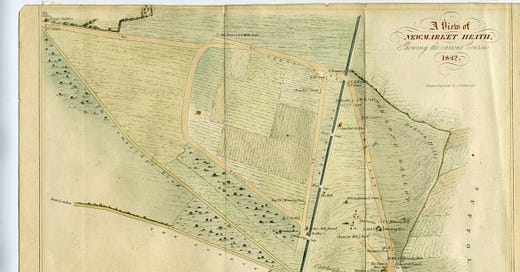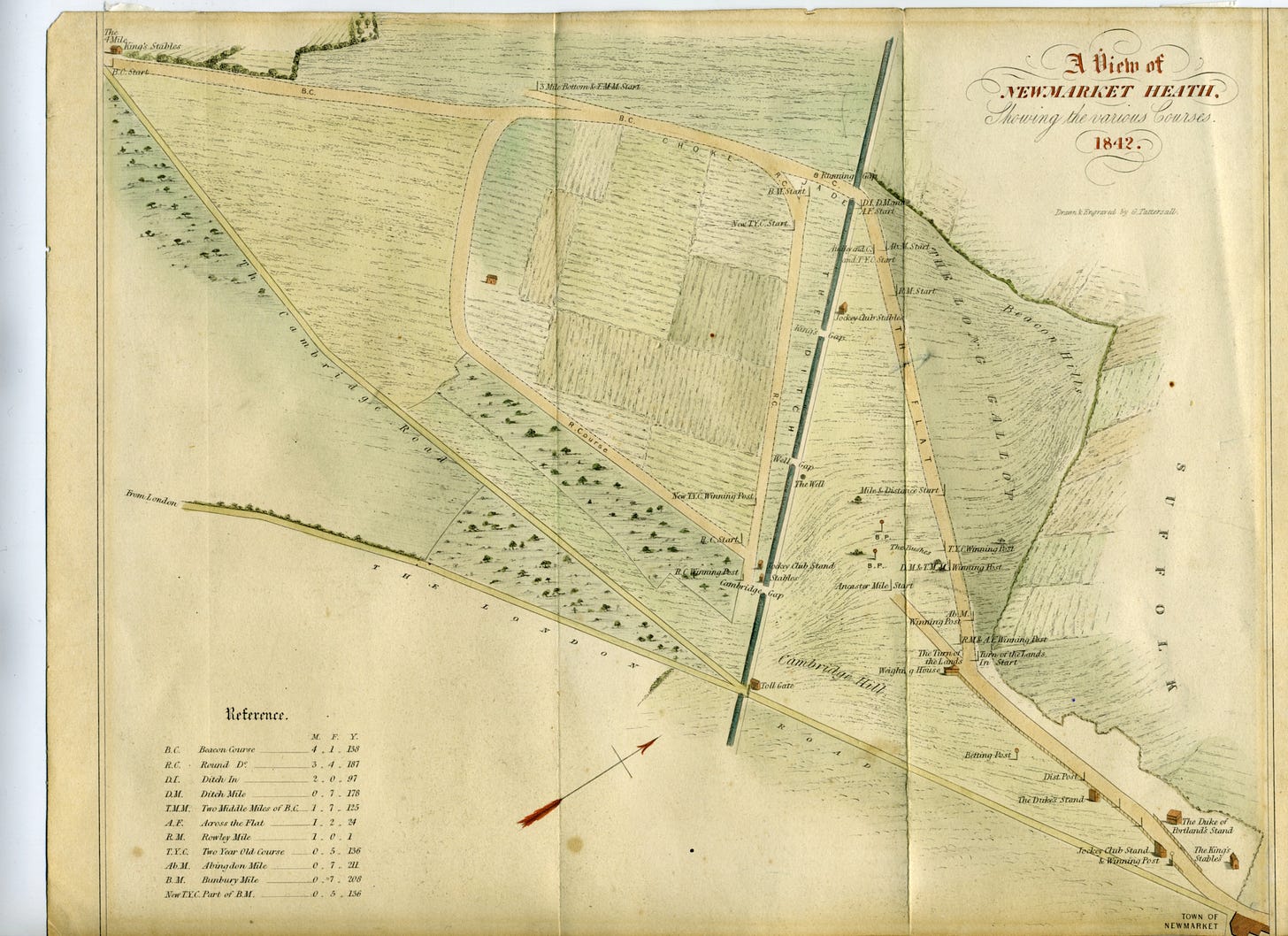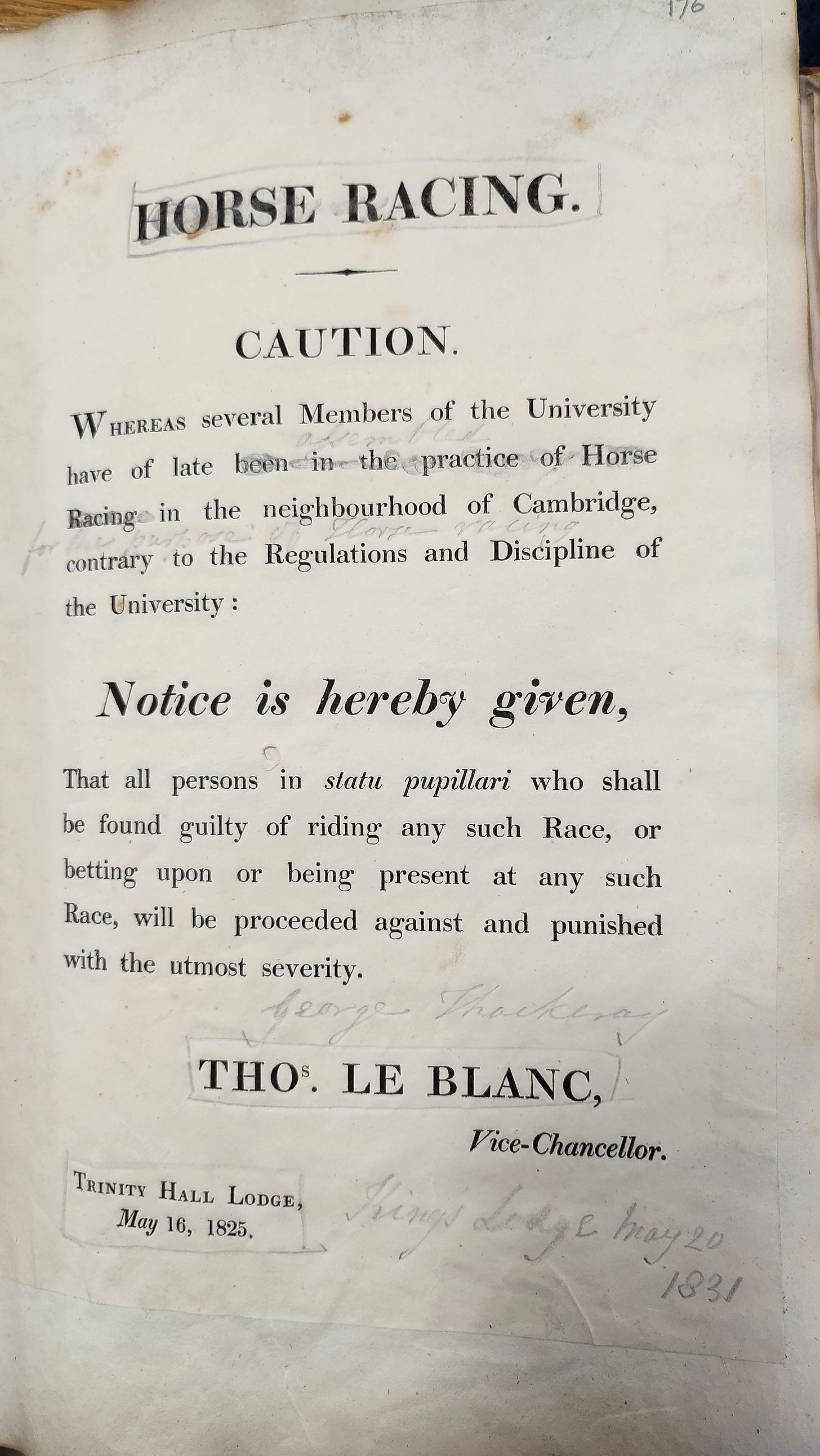I have very fond memories of Newmarket, where I lived for four years as a child in the 1970s. It’s a much busier town now but is still dominated by the horseracing industry, and traffic still has to stop to allow strings of exorbitantly expensive horseflesh to cross the road on the way to the gallops. (My mother was always terrified that a skittish horse would rear up and come crashing through the roof of her Volkswagen Beetle, so I spent much of my time being pushed down into the rear footwell “just in case”. It never happened.) Newmarket is on my mind these days because a central plot of “Gregory 2” is gambling, and one of the most acceptable and accessible forms of betting for Cambridge residents in the 1820s was at the betting posts in Newmarket.
(A couple of clarifications... Newmarket is about fifteen miles due east of Cambridge. “Flutter” is UK slang for a bet, and “gee-gee” is what children call horses here.)
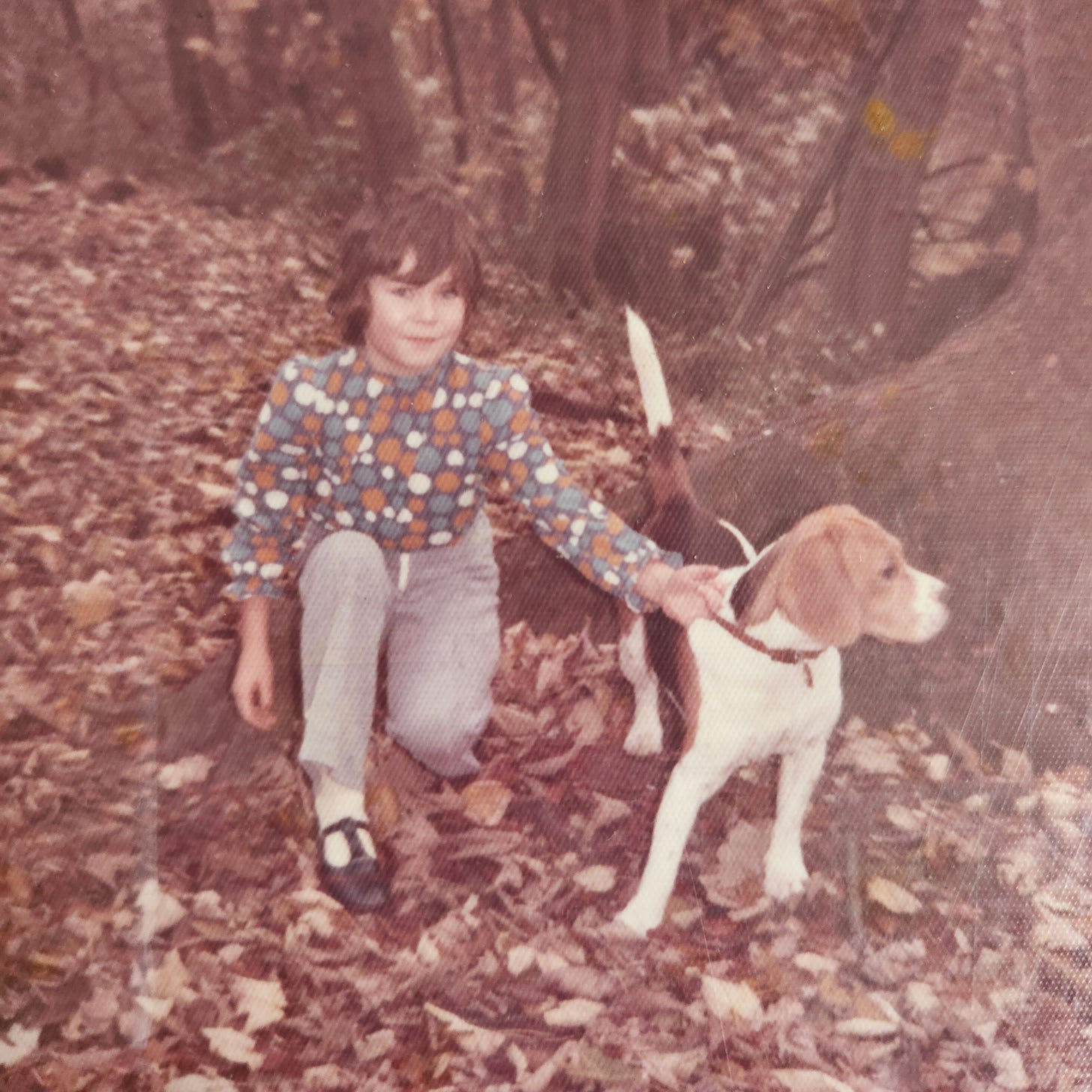
I have mentioned before how extraordinarily helpful experts are with my research, and how unfailingly generous they are with their time and their knowledge. And I have another donor to add to the list: Tim Cox of the Cox Library. This is a private library dedicated to the thoroughbred horse, and if you want to know anything about the history of horses and horseracing in Newmarket, Tim’s your man. He made the usual mistake of answering my initial enquiry promptly and in full, which means that I have continued pestering him. Thanks to Tim, I know which race meetings were run on Newmarket Heath in 1826, who turned up to them (“a remarkably full attendance of Nobility, Gentry and general Supporters of the Turf”), which horses ran and which ones won, and even what the weather conditions were like. (On one morning I might well use, the wind was “blowing a perfect hurricane and the dust flying in an intolerable degree” – sounds like a lovely day out.)
Of course, you might well be thinking that the idea of gambling does not sit well with the rather puritanical, religious bent of the University in the 1820s – and you would be right. Indeed, the Vice-Chancellor was so concerned about scholars being distracted from their studies and risking their fortunes that in May 1825 he issued a Proclamation declaring that “all persons in statu pupillari who shall be found guilty of riding any such [horse] race, or betting upon or being present at any such race, will be proceeded against and punished with the utmost severity”. This had the usual effect of such behavioural decrees upon young men, and attendance at Newmarket shot up. Gregory, with his duties as a constable (chasing down recalcitrant scholars) and through his love of horses, finds himself going there twice in 1826.
You’ll have to read “Gregory 2” to find out more, but I have uncovered some interesting things about horseracing at Newmarket in the 1820s. Until the late nineteenth century, the finish line was in different places for different races; spectators had to ride about the Heath to follow the action, so they were mostly on horseback in order to move about more easily. When the races were eventually re-organised to finish in the same place, the Jockey Club could contemplate building a grandstand for the viewing public. Although there were betting posts on the Heath, much of the betting action took place in the morning before the start of the racing, in front of the Jockey Club Rooms on the High Street. And most thrillingly of all, Tim has suggested a couple of ways in which people could cheat on the betting – which is what I wanted all along, of course (you know how I love financial skulduggery).
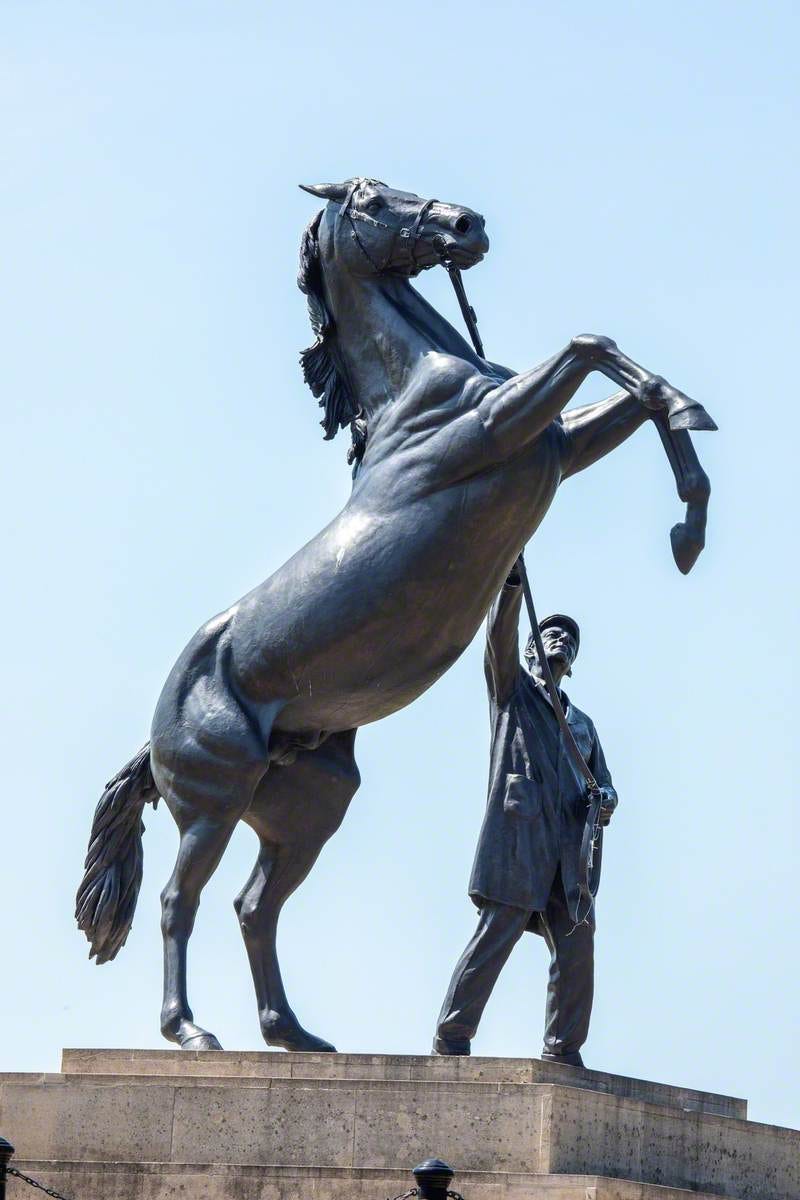
Author update
It’s a good news/bad news update this month. In the bad news, I am afraid that Ostler did not triumph at the Selfies Awards: the winner in the adult fiction category was a pink-covered romcom called Shooters. You can imagine Gregory’s reaction…
In the good news, I have auditioned and appointed two narrators: one (Brian King) to work on the remaining audiobooks in the Sam Plank series (my original Sam has retired from narration work), and the other (Phil Deadman) to take on the Gregory Hardiman series.

